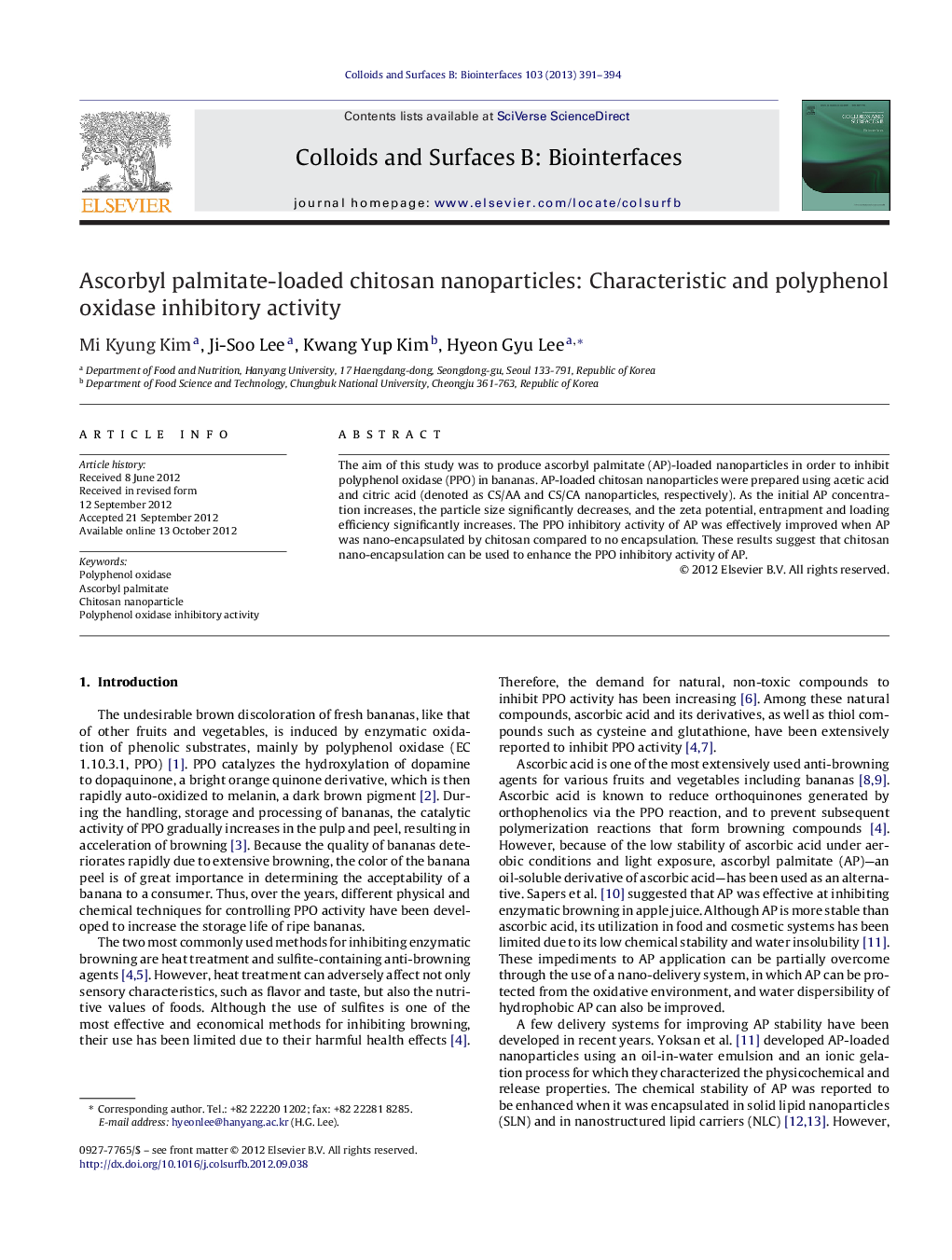| Article ID | Journal | Published Year | Pages | File Type |
|---|---|---|---|---|
| 600372 | Colloids and Surfaces B: Biointerfaces | 2013 | 4 Pages |
The aim of this study was to produce ascorbyl palmitate (AP)-loaded nanoparticles in order to inhibit polyphenol oxidase (PPO) in bananas. AP-loaded chitosan nanoparticles were prepared using acetic acid and citric acid (denoted as CS/AA and CS/CA nanoparticles, respectively). As the initial AP concentration increases, the particle size significantly decreases, and the zeta potential, entrapment and loading efficiency significantly increases. The PPO inhibitory activity of AP was effectively improved when AP was nano-encapsulated by chitosan compared to no encapsulation. These results suggest that chitosan nano-encapsulation can be used to enhance the PPO inhibitory activity of AP.
Graphical abstractFigure optionsDownload full-size imageDownload as PowerPoint slideHighlights► Characteristics and polyphenol oxidase inhibitory activities of ascorbyl palmitate-loaded nanoparticles ► Ascorbyl palmitate-loaded nanoparticles were prepared by an ionic gelation between chitosan and tripolyphosphate ► The polyphenol oxidase inhibitory activity of the nanoencapsulated ascorbyl palmitate was effectively improved.
